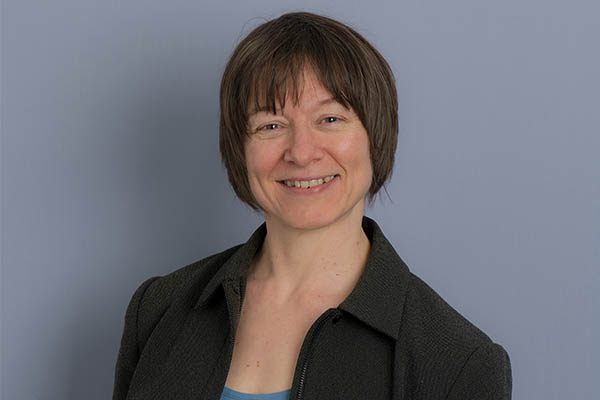.jpg)
In 2008, Anna was diagnosed with a type of blood cancer called Polycythemia Vera (PV), a Myeloproliferative Neoplasm (MPN) – it’s rare, chronic and incurable.
But that hasn’t stopped Anna from effecting real change for her community. She joined the Cancer Council Victoria Community Advisory Network (CAN) – a group of over 140 volunteers affected by cancer, who share their experience and contribute to our work to improve outcomes in cancer research, prevention, and supportive care.
“I consciously focus on the positivity of advocacy, fundraising and volunteering, which empowers me with courage, optimism and determination,” Anna said.
“It is a privilege to contribute to cancer research, prevention and support to improve the lives of Australians,” Anna continued.
CAN echoes a growing practice of pairing people affected by cancer with health professionals, clinicians and researchers to better address and inform cancer care and treatment. In doing so, it empowers people with personal cancer experiences to influence important cancer-related decision making.
Through CAN, Anna connected with Dr Nikki McCaffrey, a Senior Research Fellow at Deakin University, and contributed to her research proposal looking into the costs and benefits of the Victorian 13 11 20 Information and Support Service, which assists people affected by cancer and the broader community.
Dr McCaffrey has been working with Cancer Council Victoria since 2017, identifying and prioritising research to improve screening, prevention and treatment for cancer, along with psychosocial and other supports for people affected by cancer.

Dr Nikki McCaffrey has been working with Cancer Council Victoria since 2017.
The outcome of collaborating through CAN has been overwhelmingly positive on both sides. Integrating Anna’s valuable perspective helped cement the aims and outcomes of Dr McCaffrey’s research – and provided an important precedence for future practice to elevate the voices of the community.
“Fundamentally, she improved the research proposal,” explained Dr McCaffrey. “Anna helped me clarify the importance of the research, why it matters to the community, ways to communicate how the work addresses the community’s needs and dissemination strategies.”
"Involving community representatives may seem scary but it's been an extremely positive experience for me," said Dr McCaffrey.
"Their lived experience is invaluable and working with them has inspired further ideas on how to improve equitable care for Australians living with cancer,” she continued.
For Anna, joining CAN meant she could continue her advocacy, while also informing research and contributing to the current practice of incorporating real life experience into ways we address cancer.
“Consumer engagement in cancer research is invaluable – ensuring Australians affected by cancer are at the centre of future decisions and policy planning; guiding funding, healthcare service delivery; and the research, support and prevention of cancer,” said Anna.
Engagement with people affected by cancer is a particularly critical part of delivering best practice cancer care post-pandemic.
Danielle Spence, Cancer Council Victoria’s head of Strategy and Support, said it was vital to involve people with a lived experience of cancer in decisions related to cancer prevention, research, treatment and care.
"We’ve seen the importance of real time patient feedback during COVID-19 when changes to health service delivery were being implemented at a rapid rate,” said Danielle.
“Through our Community Advisory Network, Cancer Council helped elevate the patient voice in working groups to affect outcomes on important issues involving palliative care, hospital visitor guidelines, telehealth and information needs.
“It’s great to see the recognition from government, researchers and the healthcare sector over the last few years to incorporate the community voice in the delivery of best practice cancer care,” she continued.
Cancer Council is working to improve cancer outcomes for all Victorians. CAN members can provide their input in several ways including sharing their story, informing research funding decision-making, speaking at events, conducting media interviews and joining committees and workshops that advise our work.
Community Advisory Network
If you would like to make a request for a representative from our Community Advisory Network to contribute to your project please complete this form.
Find out more